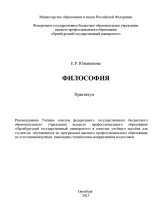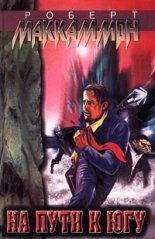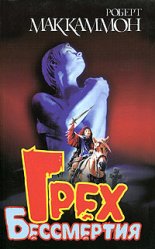Биржевая торговля по трендам. Как заработать, наблюдая тенденции рынка Ковел Майкл

Your Trading Edge. See http://www.yte.com.au.
82
Чартист – биржевой аналитик, основывающий свои оценки на анализе цен и объемов сделок с помощью специальных графиков – чартов, т. е. столбчатых диаграмм, или гистограмм. – Примеч. перев.
83
График «крестики-нолики» используется в техническом анализе. Он не отображает временною шкалу, по графику кривая цен строится после появления другого направления тренда; крестик рисуется, если цены снизились на определенное количество пунктов; если цены повысились на определенное количество пунктов, то рисуется нолик. – Примеч. перев.
84
Darrell R. Jobman, How Managed Money Became a Major Area of the Industry. Futures Vol. 21, No. 9 (July 1992), 52.
85
Futures Industry Association Conference Excerpt. Campbell and Company.
86
Value of Adding Managed Futures. Marketing Documents. Campbell and Company.
87
The Futures and Industry Association’s Future and Options Expo ’98. Held at the Sheraton Chicago Towers & Hotel in Chicago, 111., on October 14–16, 1998.
88
The Futures and Industry Association’s Future and Options Expo ’98. Held at the Sheraton Chicago Towers & Hotel in Chicago, 111., on October 14–16, 1998.
89
The Futures and Industry Association’s Future and Options Expo ’98. Held at the Sheraton Chicago Towers & Hotel in Chicago, 111., on October 14–16, 1998.
90
The Futures and Industry Association’s Future and Options Expo ’98. Held at the Sheraton Chicago Towers & Hotel in Chicago, 111., on October 14–16, 1998.
91
The Futures and Industry Association’s Future and Options Expo ’98. Held at the Sheraton Chicago Towers & Hotel in Chicago, 111., on October 14–16, 1998.
92
Chuck Epstein, The World According to J. Parker. Managed Account Reports (November 1998).
93
Barclay Trading Group, Ltd. Barclay Managed Futures Report. Vol. 2,No. 3 (Third quarter 1991), 2.
94
Simon Romero, A Homespun Hedge Fund, Tucked Away in Texas. New York Times, December 28, 2003, Business, 1.
95
Futures (March 1995).
96
«Лига плюща» (Ivy League) – объединение восьми старейших привилегированных учебных заведений на северо-востоке США: Корнельский университет в Итаке, Университет Брауна в Провиденс, Колумбийский университет в Нью-Йорке, Дартмутский колледж в Ганновере, Гарвардский университет в Кембридже, Принстонский университет в Принстоне, Пенсильванский университет в Филадельфии, Йельский университет в Нью-Хейвене. – Примеч. перев.
97
Simon Romero, A Homespun Hedge Fund, Tucked Away in Texas, New York Times, December 28, 2003, Business, 1.
98
See www.abrahamtrading.com.
99
Simon Romero, A Homespun Hedge Fund, Tucked Away in Texas, New York Times, December 28, 2003, Business, 1.
100
Jack Schwager, Market Wizards: Interviews with Top Traders, New York: New York Institute of Finance, 1989.
101
Greg Burns, Rich Dennis: A Gunslinger No More. Business Week (April 7, 1997).
102
Susan Abbott, Richard Dennis: Turning a Summer Job into a Legend. Futures (September 1983), 57.
103
Susan Abbott, Richard Dennis: Turning a Summer Job into a Legend. Futures (September 1983), 58.
104
William Baldwin, Rugs to Riches (Section: The Money Men), Forbes, (March 1, 1982).
105
Barbara Dixon, Richard Donchian: Managed Futures Innovator and Mentor. Futures Industry Association.
106
Barbara Dixon, Richard Donchian: Managed Futures Innovator and Mentor. Futures Industry Association.
107
William Baldwin, Rugs to Riches (Section: The Money Men), Forbes, (March 1, 1982).
108
Теория Доу – теория анализа фондовой конъюнктуры, основанная на интерпретации движения индексов Доу-Джонса для промышленных и транспортных акций; превышение обоими индексами предыдущего пика свидетельствует о тенденции к повышению, а падение ниже предшествующего минимального значения – о тенденции к понижению. – Примеч. перев.
109
William Baldwin, Rugs to Riches (Section: The Money Men), Forbes, (March 1, 1982).
110
Futures Industry Association Review: Interview: Money Managers. See www.fiafii.org.
111
Barbara S. Dixon – Discretionary Accounts. Managed Account Reports. Report No. 20, No. 14, 5.
112
Barbara S. Dixon – Discretionary Accounts. Managed Account Reports. Report No. 20, No. 14, 5.
113
Edwin Lefevre. Reminiscences of a Stock Operator. New York: George H. Doran Company, 1923.
114
Dickson G. Watts, Speculation as a Fine Art. Reprint. Fraser Publishing Co., 1997.
115
Alexander M. Ineichen, Absolute Returns. New York, John Wiley and Sons, 2003, 19.
116
Disclosure Document. John W. Henry & Company, Inc., August 22, 2003.
117
BMFR. Barclay Trading Group (First Quarter 2003).
118
International Traders Research Star Ranking System Explanation. See http://managedfutures.com.
119
David Greising, How Managed Funds Managed to Do So Poorly. Business Week, No. 3294 (Nov. 23, 1992), 112.
120
Desmond McRae, Top Traders. Managed Derivatives (May 1996).
121
Trend Following: Performance, Risk and Correlation Characteristics. White Paper, Graham Capital Management.
122
Ben Warwick, The Holy Grail of Managed Futures (cover story). Managed Account Reports (MAR), No. 267 (May, 2001), 1.
123
Definition from the Institutional Advisory Services Group (IASG). See www.iasg.com.
124
Marketing Materials. Dunn Capital Management, Inc.
125
D. Harding, G. Nakou and A. Nejjar, «The Pros and Cons of Drawdown as a Statistical Measure of Risk for Investments». AIMA Journal, April 2003, 16–17.
126
The Value of a Long-Term Perspective. Marketing Document. John W. Henry and Company, Inc. October 1999.
127
Thomas F. Basso, When to Allocate to a CTA? – Buy Them on Sale.
128
Julius A. Staniewicz, Learning to Love Non-Correlation. Investor Support. John W. Henry and Company, Inc.
129
Ginger Szala, Tom Shanks: Former «Turtle» Winning Race the Hard Way. Futures, Vol. 20, No. 2 (Jan. 15, 1991), 78.
130
Carla Cavaletti, Turtles on the Move. Futures Magazine, Vol. 27 (June 1998), 79.
131
Laurie Kaplan, Turning Turtles into Traders. Managed Derivatives (May 1996).
132
Larry Harris, Trading and Exchanges: Market Microstructure for Practioners. New York: Oxford University Press, 2003.
133
Larry Harris, The Winners and Losers of the Zero-Sum Game: The Origins of Trading Profits, Price Efficiency and Market Liquidity. Draft 0.911, May 7, 1993.
134
Larry Harris, The Winners and Losers of the Zero-Sum Game: The Origins of Trading Profits, Price Efficiency and Market Liquidity. Draft 0.911, May 7, 1993.
135
Larry Harris, The Winners and Losers of the Zero-Sum Game: The Origins of Trading Profits, Price Efficiency and Market Liquidity. Draft 0.911, May 7, 1993.
136
Danny Hakim, Huge Losses Move Soros to Revamp Empire. The New York Times. May 1, 2000.
137
Enoch Cheng. «Of Markets and Morality…» Caffi Bagola weblog, August 27, 2002. See http://bagola.blogspot.com/2002_08_25_bagola_archive.html.
138
Written Testimony Submitted for the Record of Lawrence Parks, Executive Director, The Foundation for the Advancement of Monetary Education. Before the Subcommittee on Capital Markets, Securities, and GSE’s; House Committee on Banking and Financial Services, United States House of Representatives. Hearing on Hedge Funds, March 3, 1999.
139
Danny Hakim, Huge Losses Move Soros to Revamp Empire. The New York Times. May 1, 2000.
140
Danny Hakim, Huge Losses Move Soros to Revamp Empire. The New York Times. May 1, 2000.
141
In re Merrill Lynch & Co. Inc. Research Reports Securities Litigation, 02 MDL 1484. Ruling by Federal Judge Milton Pollack dismissing class-action claims brought against Merrill Lynch & Co. and its former analyst Henry Blodgett.
142
Fannie Mae – распространенное название Федеральной национальной ипотечной ассоциации США (Federal National Mortgage Association) – Примеч. перев.
143
Financial Trader, Vol. 1,No. 7 (Sept./Oct. 1994), 26.2.
144
Jason Zweig, Do You Sabotage Yourself? Business 2.0 (May 2001).
145
David Dreman, Contrarian Investment Strategies. New York: Simon & Schuster; 1998.
146
Steven Pearlstein, The New Thinking about Money Is That Your Irrationality Is Predictable. The Washington Post, Jan. 27, 2002, H01.
147
Harris Collingwood, The Sink or Swim Economy. The New York Times, June 8, 2003.
148
Ayn Rand, Atlas Shrugged. New York: Random House, 1957.
149
Futures, Vol. 22, No. 12. (November 1993), 98.
150
Daniel Goleman, Emotional Intelligence. New York: Bantam, 1995.
151
Daniel Goleman, «What Makes a Leader?» Harvard Business Review, 1998.
152
Daniel Goleman, «What Makes a Leader?» Harvard Business Review, 1998.
153
Daniel Goleman, «What Makes a Leader?» Harvard Business Review, 1998.
154
Tom Girard, The Wizards Cast a Spell, Financial Trader, No. 4 (July 1995).
155
Tom Girard, The Wizards Cast a Spell, Financial Trader, No. 4 (July 1995).
156
Jack D. Schwager, The New Market Wizards. New York: Harper Business, 1992, 416.
157
The Trading Tribe at Seykota.com. See www.seykota.com/tribe.
158
Robert Koppel, The Intuitive Trader. New York: John Wiley and Sons, Inc, 1996, 74.
159
David Nusbaum, Mind Games; Trading Behavior. Futures, Vol. 23, No. 6 (June 1994), 60.
160
Michael J. Mauboussin and Kristen Bartholdson, All Systems Go: Emotion and Intuition in Decision-Making. The Consilient Observer, Vol. 3,No. 2 (January 27, 2004).
161
Jack D. Schwager, The New Market Wizards. New York: Harper Business, 1992.
162
PSD – бедный, сообразительный и отчаянно стремящийся разбогатеть (Poor, Smart and Deep Desire to become rich). – Примеч. авт.
163
Alan Greenberg, Memos from the Chairman. New York: Workman Publishing, 1996.
164
Lewis Carroll, Alice’s Adventures in Wonderland. 1865.
165
Gerd Gigerenzer and Peter M. Todd, Simple Heuristics That Make Us Smart. New York: Oxford University Press, 1999, 28.
166
Carla Fried, The Problem with Your Investment Approach. Business 2.0 (November 2003), 146.
167
Seykota.com.
168
See www.2think.org.
169
Gerd Gigerenzer and Peter M. Todd, Simple Heuristics That Make Us Smart. New York: Oxford University Press, 1999, 14.
170
Gerd Gigerenzer and Peter M. Todd, Simple Heuristics That Make Us Smart. New York: Oxford University Press, 1999, 358.
171
Futures, Vol.22, No.12 (November 1993), 98.
172
Gerd Gigerenzer and Peter M. Todd, Simple Heuristics That Make Us Smart. New York: Oxford University Press, 1999, 361.
173
Gerd Gigerenzer, Smart Heuristics. Edge Foundation, Inc., March 31, 2003. See www.edge.org.
174
Presentation before the New York Mercantile Exchange.
175
Market Commentary. John W. Henry and Company.
176
Daniel P. Collins, Building a Stronger Fort (Trader Profile: Yves Balcer and Sanjiv Kumar). Futures, Vol. 21, No. 6 (May 1, 2003), 82.
177
Gerd Gigerenzer, Smart Heuristics. Edge Foundation, Inc., March 31, 2003. See www.edge.org.
178
Clayton M. Christensen, The Innovator’s Dilemma. Boston: Harvard Business School Press, 1997.
179
Michael J. Mauboussin and Kristen Bartholdson, Be the House: Process and Outcome in Investing. The Consilient Observer, Vol. 2,No. 19 (Credit Suisse First Boston, Oct. 7, 2003).
180
J. Edward Russo and Paul J. H. Schoemaker, Winning Decisions. New York: Doubleday, 2002.
181






